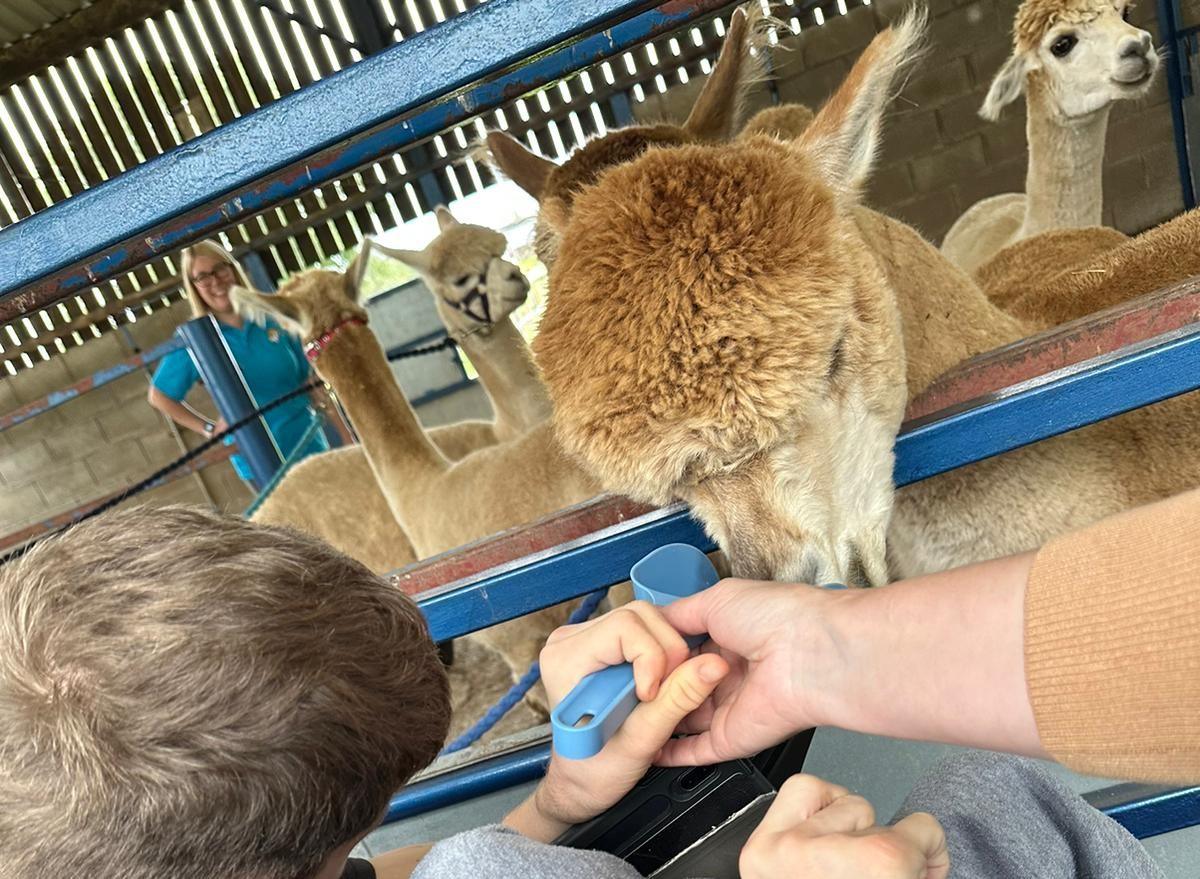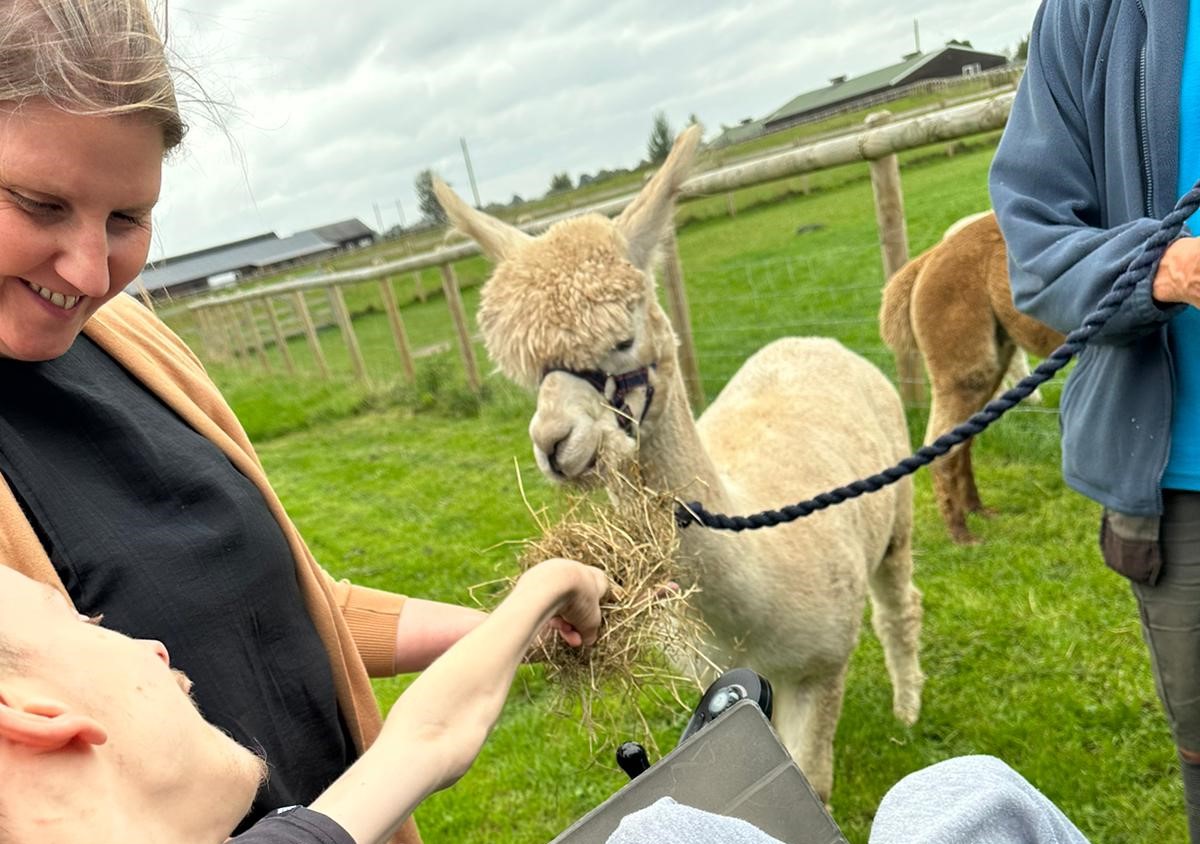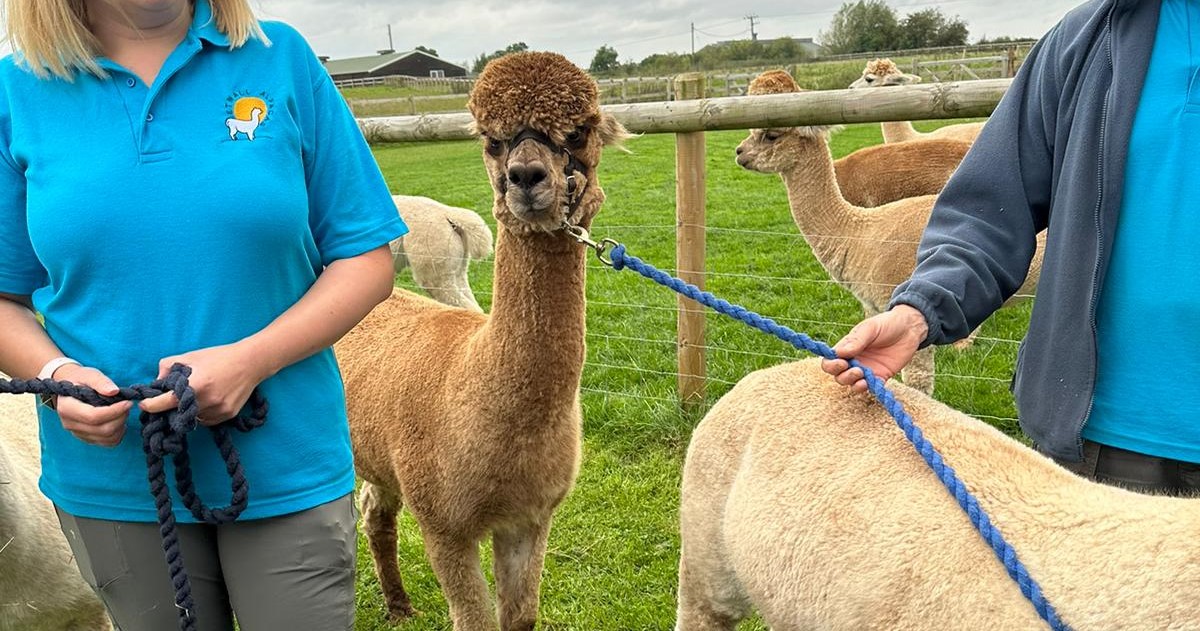This year’s World Mental Health Day reminded us of the importance of mental health and well-being. It was a day to reflect on mental health and the challenges faced by individuals. It was also an opportunity to draw attention to innovative and holistic approaches such as animal-assisted therapy (AAT).
AAT which is an increasingly recognised method for enhancing mental well-being, plays a crucial role in this context. This article delves into the profound impact of alpacas in AAT, and it all started with a recent visit by some young adults at Progress’ Nightingale House to Etwell Alpacas.
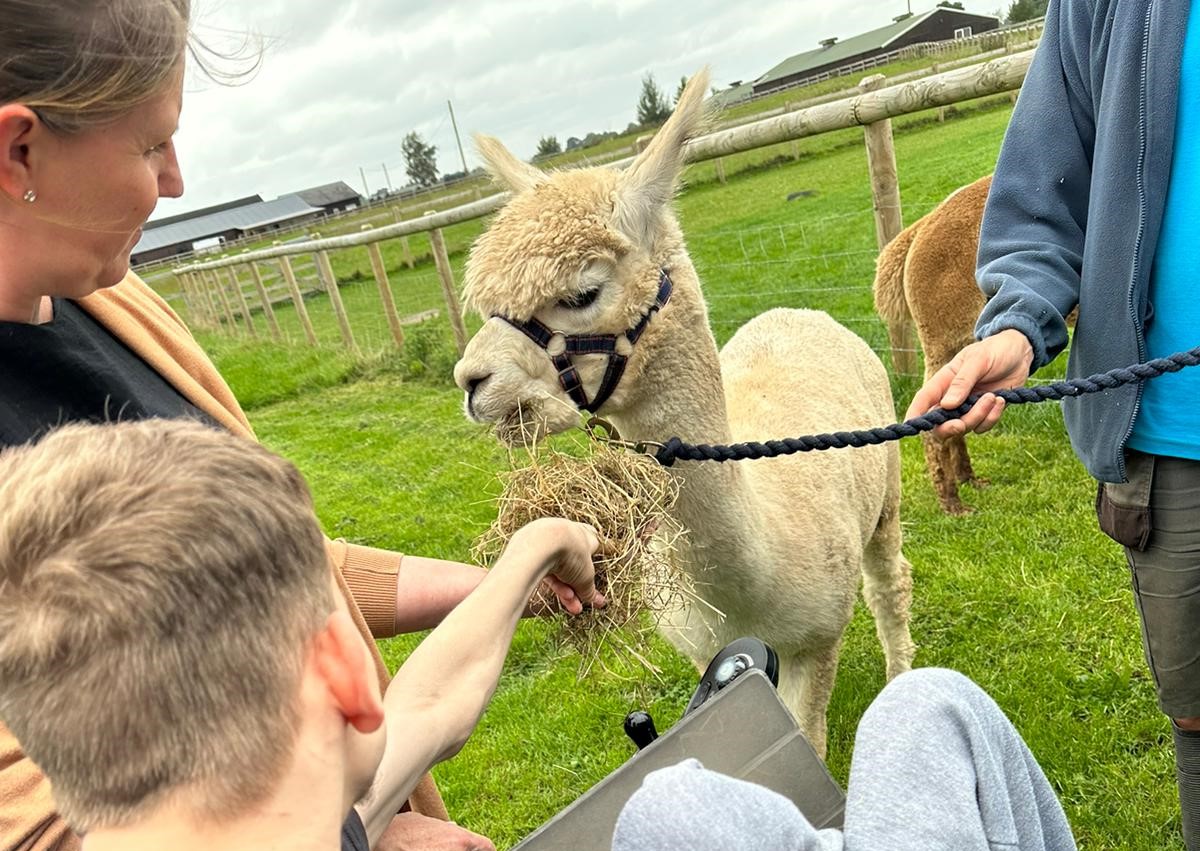
Alpacas and the Power of Animal-Assisted Therapy
AAT is a therapeutic approach that harnesses the companionship and skills of animals to improve the well-being of individuals facing various physical, emotional, and mental challenges. Alpacas, with their gentle and non-judgmental nature, have proven to be exceptional partners in this therapeutic endeavour. On World Mental Health Day, it is crucial to emphasize the significance of AAT in promoting mental wellness.
Alpacas, a close relative of llamas, are renowned for their intelligence, curiosity, and direct yet non-judgmental nature. These qualities make them ideal partners in AAT, especially for individuals who may feel overwhelmed or threatened by human interactions. The presence of alpacas often creates a safe and nurturing environment, offering numerous psychological, emotional, social, and physical benefits. Some of the benefits of animal-assisted therapy are as follows:
- Development of Trust and Emotional Bonds: Interactions with alpacas foster trust and respect, helping individuals form meaningful emotional connections.
- Improved Mood and Self-Worth: Spending time with alpacas can lead to improved morale and a sense of self-worth, which is crucial for mental health.
- Enhanced Social Interaction: Alpacas facilitate social engagement, reducing feelings of isolation and loneliness, common struggles in mental health.
- Stress and Anxiety Reduction: AAT with alpacas has been shown to lower heart rate and reduce blood pressure, leading to a sense of calm and relaxation, key for managing anxiety and stress.
- Learning New Skills: Nurturing and caring for alpacas can help individuals acquire new skills and build self-esteem and confidence, contributing to improved mental well-being.
- A Safe Space for Expression: Alpacas provide a non-judgmental environment where clients may find it easier to express their feelings and discuss sensitive issues, aiding in therapeutic discussions.
Progress Young Adults’ Alpaca Experience
We were able to get close to the alpacas, stroke them and feed them. The staff at Etwell Alpacas were very accommodating and gave lots of information about the alpacas. – Jacqueline Beer (Registered Manager, Nightingale House)
Describing the young adults’ visit to Etwell Alpacas, Jacqueline Beer, registered manager at Nightingale House , said the experience was great.
“We were able to get close to the alpacas, stroke them and feed them. The staff at Etwell Alpacas were very accommodating and gave lots of information about the alpacas,” Jacqueline said.
As an adult’s home, Jacqueline said the young adults that went to Etwell Alpacas enjoyed the experience. One of them, RF, was able to feed and stroke the alpacas while the second young adult on the trip, EE, enjoyed watching the alpacas.
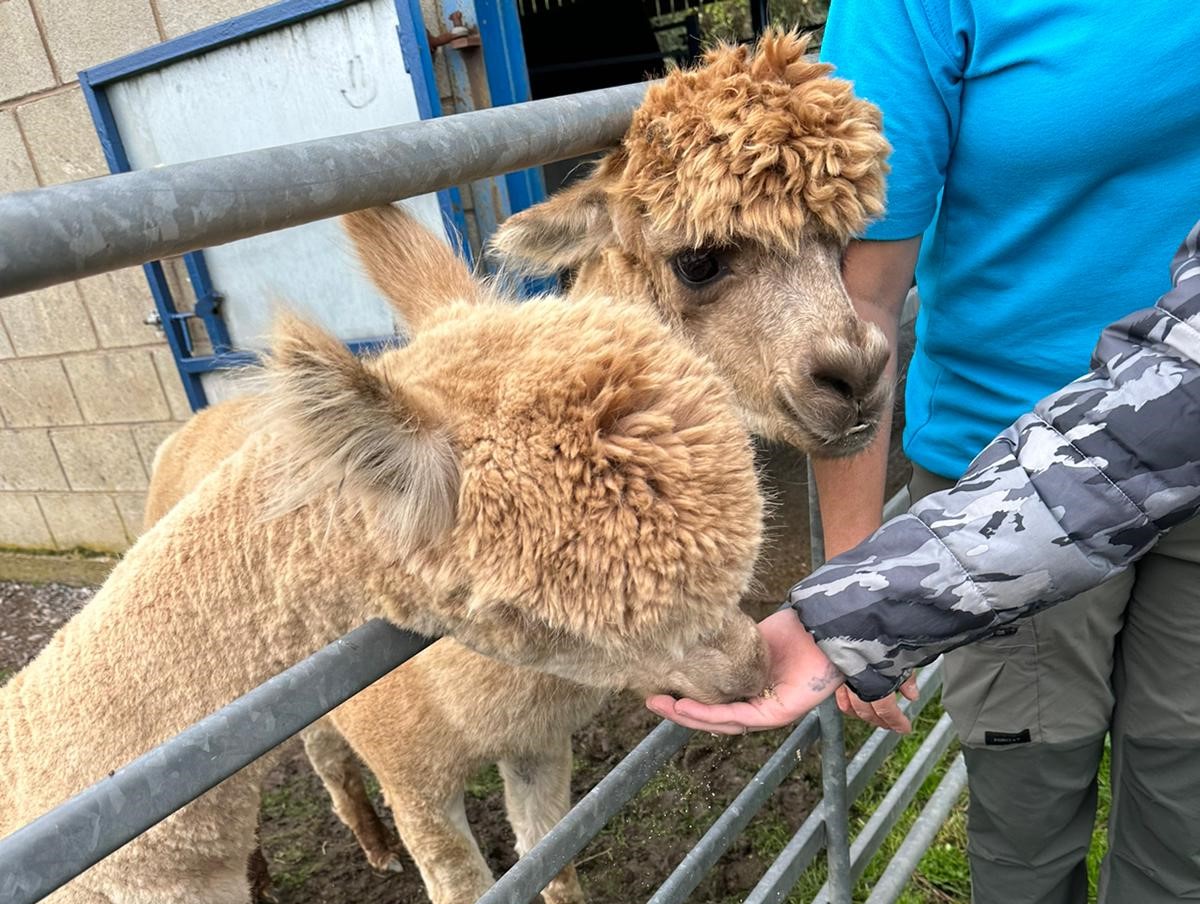
Supporting Young Adults to be Part of the Community
According to Jacqueline, the visit to the alpacas is one of the ways that the service is supporting and encouraging all its young adults to access the community and take part in a variety of activities.
In the UK, the British Alpaca Society (BAS) plays a pivotal role in promoting the welfare of alpacas and educating their owners in the UK. With approximately 45,000 alpacas under their care, BAS said it is dedicated to providing resources and support to alpaca owners and breeders.
Etwall Alpacas that hosted young adults from Progress, is a small family and friends run alpaca farm set in 56 acres situated on the outskirts of the village of Etwall in the South Derbyshire countryside. Formed in 2022, it started trading 2023 and is now a fully licensed business. The farm consists of a variety of grass and tarmac paths with a woodland area.
